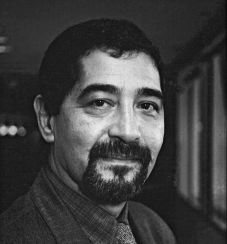This model was declared by the World Bank as the most viable for developing countries. It was later adopted by El Salvador, Colombia, Uruguay, Togo and Mauritania.
In the early 1990s, Soriano helped lead a group of computing pioneers whose efforts resulted in the development of the first networks that would ultimately become the Internet in Latin America.
Soriano’s initial career as a journalist coincided with the early proliferation of the Internet in the U.S. and Europe, and he quickly recognized the Internet’s potential to disseminate information and empower Peruvian citizens.
In 1991, he founded Red Cientifica Peruana (RCP), a non-profit organization established to develop the network in Peru in partnership with 43 civil society institutions. As RCP’s general coordinator from 1991 to 2000, he built a team of 70 engineers, administrators and instructors.
RCP, which became the first ISP (Internet Service Provider) in Latin America, was conceived to bring Internet access to all Peruvians, and Soriano’s vision and leadership guided this idea.
He effectively advocated for a national initiative that developed the network independent of government and telecom interests, which could slow down or limit the network’s reach; he designed and deployed thousands of Public Internet Kiosks, so access was easy and inexpensive; and he emphasized the need for local trainers and content, to ensure that the Internet was more accessible and relevant to local communities.
Building on this commitment, in 1995 Soriano launched the first website in Quechua, the native language of the Incas, which is still spoken by almost 8 million (25%) Peruvians.
Soriano played a leading role in the construction of the Latin American Network Forum, the Latin American and Caribbean Internet Address Registry, and the organization of Latin American and Caribbean governance organizations and regional Internet registries, such as the Latin America and Caribbean Network Information Centre.
He also served as a senior consultant for the Inter-American Development Bank, World Bank, United Nations Development Program and several national governments.

